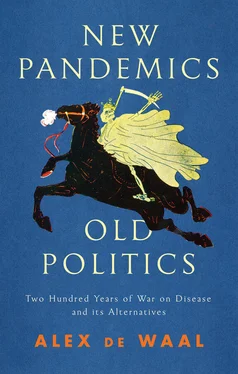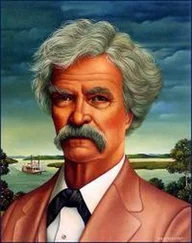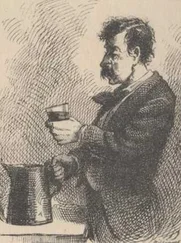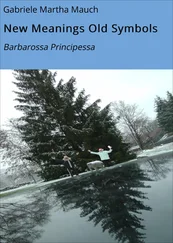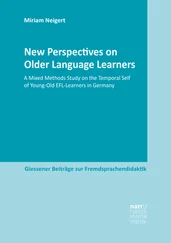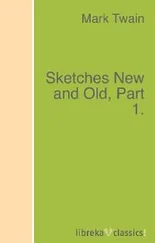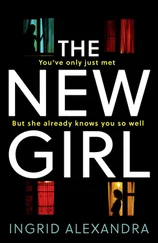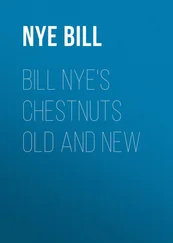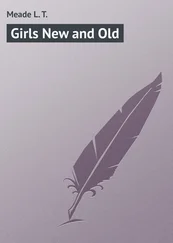Alex de Waal - New Pandemics, Old Politics
Здесь есть возможность читать онлайн «Alex de Waal - New Pandemics, Old Politics» — ознакомительный отрывок электронной книги совершенно бесплатно, а после прочтения отрывка купить полную версию. В некоторых случаях можно слушать аудио, скачать через торрент в формате fb2 и присутствует краткое содержание. Жанр: unrecognised, на английском языке. Описание произведения, (предисловие) а так же отзывы посетителей доступны на портале библиотеки ЛибКат.
- Название:New Pandemics, Old Politics
- Автор:
- Жанр:
- Год:неизвестен
- ISBN:нет данных
- Рейтинг книги:4 / 5. Голосов: 1
-
Избранное:Добавить в избранное
- Отзывы:
-
Ваша оценка:
- 80
- 1
- 2
- 3
- 4
- 5
New Pandemics, Old Politics: краткое содержание, описание и аннотация
Предлагаем к чтению аннотацию, описание, краткое содержание или предисловие (зависит от того, что написал сам автор книги «New Pandemics, Old Politics»). Если вы не нашли необходимую информацию о книге — напишите в комментариях, мы постараемся отыскать её.
New Pandemics, Old Politics — читать онлайн ознакомительный отрывок
Ниже представлен текст книги, разбитый по страницам. Система сохранения места последней прочитанной страницы, позволяет с удобством читать онлайн бесплатно книгу «New Pandemics, Old Politics», без необходимости каждый раз заново искать на чём Вы остановились. Поставьте закладку, и сможете в любой момент перейти на страницу, на которой закончили чтение.
Интервал:
Закладка:
Following the Science
Experts on pandemics like the storm metaphor. The influential health scientist Michael Osterholm has compared an influenza pandemic to a blizzard and coronavirus to a hurricane. 2In 2007, the United States Federal Government published a preparedness plan that adapted the five-level tropical storm classification scale for use in responding to epidemics (where a ‘category 5’ is the most destructive). 3It grades national-level disease outbreaks in terms of fatalities. According to its rankings, Covid-19 in 2020 would be category 2 (that is, an order of magnitude less severe than some of the diseases anticipated.) The scale may be a useful prop for getting politicians to take notice, but it reproduces an elementary mistake. A pandemic isn’t just a disease outbreak or epidemic multiplied to pan-continental size. Scale is important, for sure, but there’s a qualitative aspect as well. The World Health Organization (WHO) stirred controversy in 2009 when it quietly changed its definition of an influenza pandemic. The previous definition was ‘when a new influenza virus appears against which the human population has no immunity, resulting in several simultaneous epidemics worldwide with enormous numbers of deaths and illness’. The revised one cut out the words ‘enormous numbers of deaths and illness’. 4A pandemic that doesn’t cause massive human suffering might seem odd to the layperson, but the virologists’ particular concern is the newness of the pathogen and not how many people it sickens and kills. The novel coronavirus that causes Covid-19 is exactly such a candidate. Its closest relative is severe acute respiratory syndrome (SARS), which emerged in 2002, and it has some epidemiological similarities to influenza, but Covid-19 possesses characteristics all of its own.
For doctors, microbiologists, and epidemiologists, what matters in the storm isn’t so much the wind but the darkness: we can’t see our way. There’s a trope among crisis epidemiologists: if you’ve seen one pandemic, you’ve seen just one pandemic. 5The health metrics expert Chris Murray described constructing his model for Covid-19 as ‘forecasting the weather while trying to build the forecasting tools’. 6Perhaps we should adapt the storm metaphor to capture the fact that each pandemic isn’t just a hurricane, it’s a new kind of weather condition. Margaret Chan, Director General of the WHO in 2009, observed ‘the virus writes the rules’. 7Those rules govern how the disease is transmitted, which people are symptomatic and which are contagious and when, and what the microbe does to the human body and brain. It can take years to figure them out. In the case of the novel coronavirus, science has moved with unprecedented speed, but it is still lagging behind the epidemic curve. What we do during that lag is what’s most important.
We like to think that biomedical scientists can provide authoritative certainty. As a pandemic hits, that isn’t so. They are confident that their research methods will provide answers, but they don’t have them yet. A new pathogen is an off-model event and models don’t (by definition) predict them. In these events, it’s the narrative that counts. 8Scientists also have difficulty in explaining what their uncertainties mean to the public. In turn, every doubt or debate feeds the appetite of denialists, conspiracists, and pseudo-scientists, such as anti-vaxxers. In America, changes in advice to the public from the Centers for Disease Control and Prevention (CDC) in the early days of Covid-19 – initially advising against stopping incoming travellers from Europe and China 9– have been repeatedly brought up by far-right pundits purportedly to show that public health authorities can’t be trusted. Public health spokespeople and science journalists find that debating denialists registers somewhere between irritation and enraged despair. The difficulty is that the history of medicine includes enough moral outrages, good-faith errors, and unanticipated calamities to justify critical questioning. But leveraging these concerns to assail the whole edifice is to misunderstand the nature of scientific authority. To the religious dogmatist, authority is flat: all statements of scripture possess the same sacred quality, and to doubt one is to doubt all. To the scientific mind, theories are open to revision, technologies are not infallible, but facts are real.
Science is itself a journey. Every time the climbers reach a summit, they see a new vista of peaks and valleys to explore. The history of science shows that understanding a pandemic pathogen isn’t merely an increment to existing medical knowledge but can also be a paradigm-shifting breakthrough. For each of the main pathogens examined in this book – cholera, influenza, and HIV, plus yellow fever and Ebola, which are covered more briefly – the search for prevention and cure has taken scientists into new terrain they could not have anticipated. Of all the sciences, medicine is the one most focused on the human being as such, and it is notable that it has been biologists who have blurred the boundaries of the human self, imputed agency to microbes, and in other ways challenged the distinction between the natural world and the human, so foundational to our modernist worldviews. Bruno Latour has made the same observation with regard to those hardest of hard scientists, geologists, who coined the word ‘Anthropocene’ to refer to our current era in which human activities are determining the global ecosystem. He writes: ‘No postmodern philosopher, no anthropologist, no liberal theologian, no political thinker would have dared measure the influence of humans on the same scale as rivers, volcanos, erosion and biochemistry.’ 10In medicine as in geology, such critique doesn’t come from post-modernist literary theorists, but from the Sherpas of scientific exploration themselves. We will see that this is the case for Covid-19 too.
A Week Is a Long Time
Pandemics move faster than politics. In the early acute phase, the number of cases of a disease can double every few days. It’s a frightening trajectory. A week is a long time for a pathogen, as it is in politics.
Public leaders must act very quickly. Individuals who hold high office are, in general, attuned to their constituents’ anxieties and what those may mean for the political order and their own political standing. They’re not usually very literate in the science of infectious diseases and they don’t have time to learn anything new and complicated. At that moment of darkness and uncertainty as the pandemic storm breaks, ministers and presidents want reassurance – for themselves and so they can provide leadership in the hour of crisis. Their task is to control the narrative, to buy time and calm, so that public health and medicine can control the disease.
A government leader has scientific advisers. For medical issues, that means biomedical scientists. The hierarchy of academic disciplines becomes desperately important at this moment of crisis because this is the order in which the decision-maker consults them, and the weight that their advice carries. This is shown by Nancy Krieger, who compares the number of projects funded by the US National Institutes of Health for the hard biomedical sciences as against social epidemiology: the ratio is 25 to one. Peer-reviewed publications favour the hard biomedical sciences 194 to one. 11Between the academic top table and the rest of the scholarly hall there’s a huge step down – more of a precipice than a gradient. Next in the ranking are the epidemiological modellers, below them the social epidemiologists, and last the medical anthropologists and historians. Ecological scientists sit somewhere in the middle. This hierarchy corresponds roughly to the ‘hardness’ of the science, and depending on where a researcher sits, everyone above him or her is a true ‘hard scientist’ and everyone below a ‘soft’ one. It’s a gendered hierarchy – there are far fewer women in the higher reaches. Those at the farthest end of the hall – who study literature, history, and social anthropology – like to critique and deconstruct the hierarchy and mock the pretensions of those at the top. Meanwhile, hard scientists tend to go softheaded when they cross the boundary into social and political analysis – they turn to platitude and metaphor. They know what ought to be done: it’s just a matter for the public, or society, or whoever, to get on and do it.
Читать дальшеИнтервал:
Закладка:
Похожие книги на «New Pandemics, Old Politics»
Представляем Вашему вниманию похожие книги на «New Pandemics, Old Politics» списком для выбора. Мы отобрали схожую по названию и смыслу литературу в надежде предоставить читателям больше вариантов отыскать новые, интересные, ещё непрочитанные произведения.
Обсуждение, отзывы о книге «New Pandemics, Old Politics» и просто собственные мнения читателей. Оставьте ваши комментарии, напишите, что Вы думаете о произведении, его смысле или главных героях. Укажите что конкретно понравилось, а что нет, и почему Вы так считаете.
